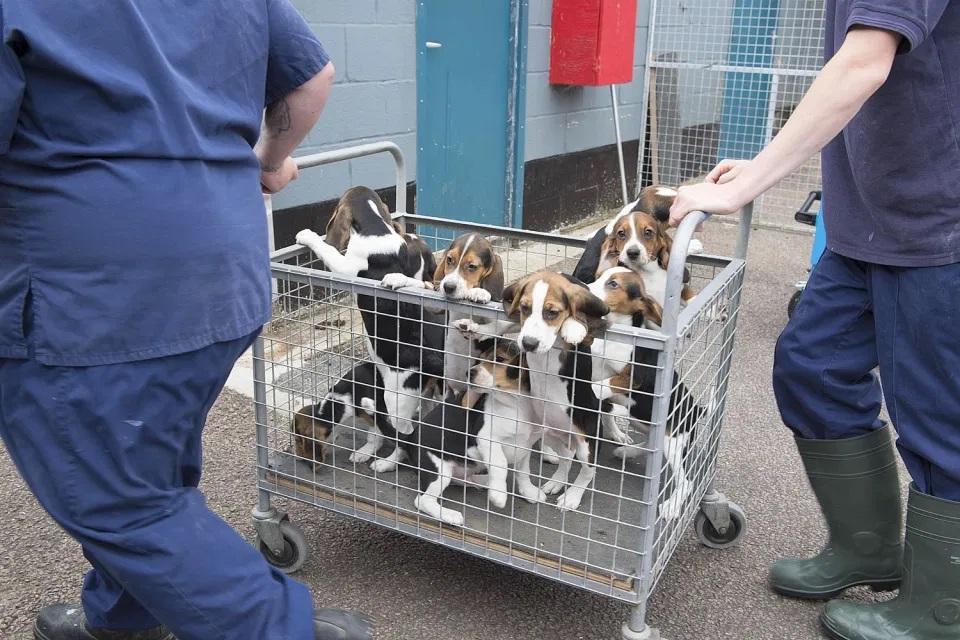Animal Rights, a non-profit that protects animals, is organising a demonstration at Belgium-based Janssen Pharmaceutica to draw attention to the experiments carried out on dogs, which include giving them electric shocks.
As part of the research into the link between epilepsy and cardiac arrhythmia, 12 healthy beagles had electrodes implanted in their skulls for the administering of electrical currents to cause strokes at the Beerse site of the pharmaceutical company, owned by Johnson & Johnson.
"In this experiment, the use of electric currents was done under anaesthesia, but for future animal experiments, Janssen Pharmaceutica plans to administer electric currents to dogs when they are fully conscious," according to Animal Rights.
Before the surgery, half of the dogs were injected with a drug to induce cardiac arrhythmia. At the end of this particular experiment, all the dogs were killed with an overdose of potassium chloride, a lethal drug that stops the heart, Animal Rights' Jen Hochmuth said.
In 2019, Janssen Pharmaceutica used 122 new dogs in animal testing. In the last decade, around 7,411 animal tests on dogs have been carried out at the Beerse site, more than at any other location in Belgium, according to Animal Rights.
All dogs come from a dog breeding farm called CEDS, where 4,000 puppies are bred annually for animal testing.
Alternative ways of testing
The animal rights group wants all testing on dogs to end, and wants the government to take the development of technologies which could replace animal testing seriously.
"There are now computer models that can encode human responses. Oxford University is already working on a computer model that predicts whether certain drugs may harm the heart. It has been proven that this system shows better predictions than tests on dogs," the group argued.
Janssen Pharmaceutica said it is committed to limiting the number of animals tested as much as possible and that it is working hard to replace the number of animal tests with alternatives, but argued that without animal testing, "not a single drug would have been approved". It also refutes Animal Rights' figures on tests on dogs.
"They do not take into account the rules on animal testing statistics that have changed since 2014," spokesman Tim De Kegel told Gazet van Antwerpen.
"The reality is that the number of dog tests carried out at Janssen is 12% lower than in 2010. An independent ethics committee supervises all animal tests and will grant permission for the performance of an animal test if it is demonstrated that there is no alternative," he added.
On Wednesday 14 July, Animal Rights is organising a silent demonstration in front of the gates of the Beerse site to demand the release of the dogs, and has said it is willing to take in all dogs.
"As a statement, we will also take 50 dog baskets with us, which we will place in front of the entrance. Every dog, whether it is a test animal or a pet, needs a warm basket, not a cold lab," Hochmuth said.

